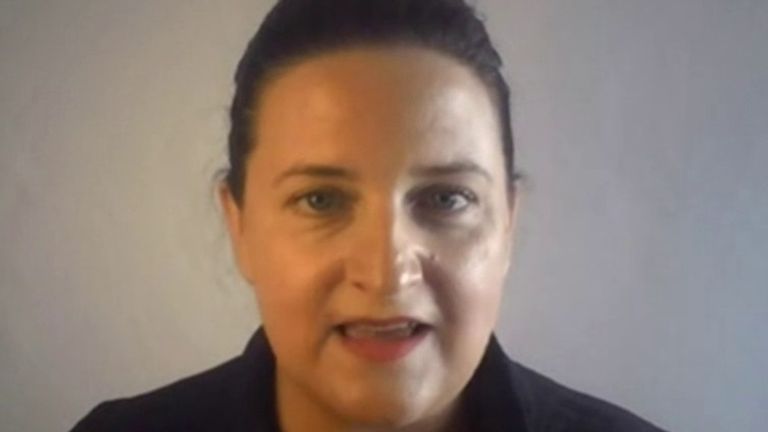Housing market cools as stamp duty holiday ‘tapering’ erodes price heat
Average house prices fell back for the first time since March last month as the stamp duty holiday for England and Northern Ireland started to wind down, according to a closely-watched survey.
Nationwide Building Society charted a 0.5% decline this month – wiping out much of the gains seen in June as buyers rushed to beat the deadline for the full temporary tax break.
From 30 June, the threshold was reduced from £500,000 to 250,000 and will return to its pre-COVID pandemic level of £125,000 on 30 September.
The holiday, introduced by the chancellor and matched with similar schemes for Wales and Scotland, has been credited with helping the market recover from lockdowns to protect public health – building on pent-up demand and a frenzy of interest for properties offering more space.
But critics say it has only helped drive prices higher, leaving properties unaffordable for many first-time buyers despite further government assistance.
Nationwide said the rate of annual house price growth stood at 10.5% in July.
It had stood at 13.4% in June when transactions hit a record high of almost 200,000 – double the number expected in normal times.
It reported that the average house cost £244,229.
The mortgage lender’s chief economist, Robert Gardner, said: “The modest fall-back in July was unsurprising given the significant gains recorded in recent months.
“Indeed, house prices increased by an average of 1.6% a month over the April to June period – more than six times the average monthly gain recorded in the five years before the pandemic.
“The tapering of stamp duty relief in England is also likely to have taken some of the heat out of the market.”
He said of the beginning of the end for the tax break: “For those purchasing a property above £250,000, the maximum stamp duty saving reduced from £15,000 to £2,500 after the end of June.”
But Nationwide added that the market UK-wide generally remained “solid” thanks to record low interest rates on mortgages and weak supply of new homes.
It said that demand for houses was still easily outstripping enquiries for flats as people continued to work from home.
However, others were far more cautious on the outlook.
Guy Harrington, chief executive of residential lender Glenhawk, said: “It is astonishing just how far removed from reality the last one year has been.
“Pent up demand outstripping supply, coupled with government support schemes, has overheated the market to the point where far too many have been priced out.
“We can’t forget that household income is likely to fall by the end of the year and availability of credit could also dry up.
“Alongside a mass return to the office underpinning a reversal of the so called ‘race for space’ phenomenon, it wouldn’t be surprising if a pricing shock was just around the corner.”
